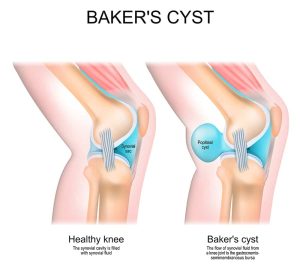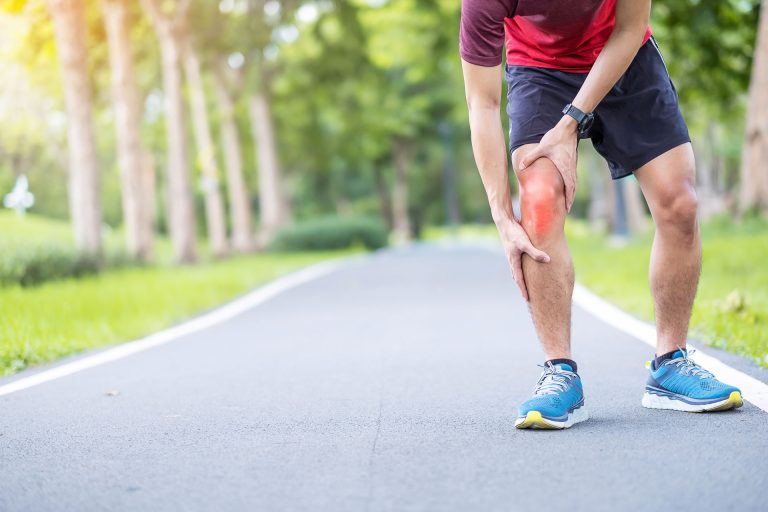

Patellar tendonitis, commonly known as Jumper’s Knee, is an overuse injury that occurs when the patellar tendon (which connects the kneecap to the shinbone) becomes inflamed and weakened due to repetitive stress. This condition is common among athletes who engage in sports involving frequent jumping, running, and rapid directional changes, such as basketball, volleyball, and soccer.
Over time, excessive strain on the patellar tendon leads to microtears, reducing its ability to absorb force and increasing pain. If left untreated, patellar tendonitis can progress to patellar tendinopathy, a more chronic and degenerative condition.
The severity of symptoms can vary, but individuals with patellar tendonitis often experience:
Pain or tenderness just below the kneecap (patella), especially during activity.
Gradual onset of pain that worsens with jumping, running, or prolonged knee bending.
Stiffness in the knee, particularly in the morning or after periods of inactivity.
Swelling or localized tenderness around the patellar tendon.
Weakness or difficulty with activities involving knee extension, such as squatting or climbing stairs.
Several factors can contribute to the development of patellar tendonitis. According to research, the following 9 main risk factors increase the likelihood of developing this condition:
Excess body weight (BMI) – Increased weight places more stress on the knee joint.
Waist-to-hip ratio – Poor weight distribution can contribute to abnormal movement patterns.
Leg-length discrepancies – Unequal leg lengths can cause biomechanical imbalances, increasing tendon strain.
Foot arch height – High or low arches can alter force distribution and knee alignment.
Quadriceps flexibility – Tight quadriceps can increase stress on the patellar tendon.
Hamstring flexibility – Poor flexibility in the hamstrings affects knee mechanics.
Quadriceps strength – Weak quadriceps reduce knee stability, leading to excess strain on the tendon.
Jumping mechanics – Athletes with poor landing mechanics are more prone to tendon overload.
Repetitive high-impact activity – Continuous stress from sports or physical activities can lead to microtears and degeneration.
At York-Med Physiotherapy & Wellness Centre, our registered physiotherapists and chiropractors in Richmond Hill provide a comprehensive, evidence-based treatment approach tailored to each individual’s condition. Our goal is to reduce pain, restore strength, and prevent re-injury through a personalized rehabilitation plan.
Our Treatment Approach Includes:
Hands-on massage therapy and joint mobilization to relieve tension, improve blood circulation, and enhance knee flexibility.
Stretching and flexibility exercises to improve quadriceps and hamstring mobility.
Strengthening exercises focused on the quadriceps, hamstrings, and glutes to improve knee stability.
Eccentric loading exercises to gradually strengthen the patellar tendon and enhance its ability to tolerate stress.
Education on proper jumping and landing techniques to reduce tendon strain.
Modifying training loads to prevent further injury while maintaining fitness levels.
Customized knee bracing and patellar taping techniques to provide support and alleviate pain during movement.
Ultrasound therapy, TENS (Transcutaneous Electrical Nerve Stimulation), and shockwave therapy to promote healing, reduce inflammation, and relieve pain.
A progressive rehabilitation plan designed to safely reintegrate individuals back into sports and daily activities while minimizing the risk of recurrence.
At York-Med Physiotherapy & Wellness Centre, we specialize in treating knee injuries using a scientific, evidence-based approach. Whether you’re an athlete looking to return to sport or someone struggling with knee pain during daily activities, our expert team of physiotherapists and chiropractors will develop a treatment plan customized for you.
Contact York-Med Physiotherapy today to schedule a consultation and start your recovery journey!
© 2020 York-Med Physiotherapy and wellness center | Richmond Hill & Vaughan. All Rights Reserved.
Designed by Magham Agency